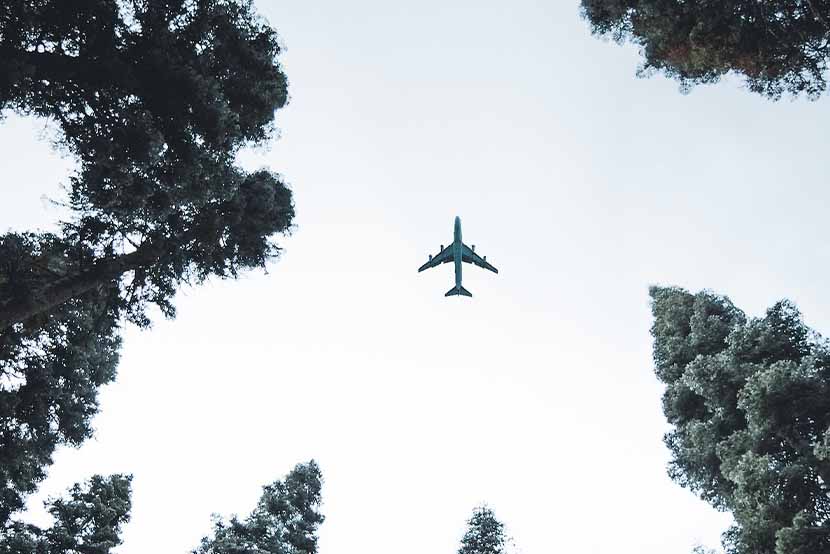Monday, June 5, 2023

Sustainability in the aviation industry is crucial for mitigating environmental impact. Airlines are adopting measures like using sustainable aviation fuel, improving fuel efficiency, and investing in eco-friendly technologies. Additionally, efforts are being made to reduce carbon emissions, promote recycling and waste management, and implement sustainable practices throughout the entire aviation ecosystem.
Here is a discussion with Leslie Thng, Chief Executive Officer, Scoot and Valeria Bragarenco, Corporate Communications Manager, Wizz Air about the usage of sustainable fuel in aviation industry.
Mr. Leslie Thng: Do you have any plans to introduce sustainable fuel ?
Scoot, together with the Singapore Airlines Group (SIA), has committed to the 2050 net zero goal, and with our relatively young fleet (6 years on average) that are more fuel-efficient, the Group is already at a level of carbon intensity some airlines have set as their 2030 target.
We believe that having a new generation of aircraft in our fleet is one of the most efficient ways of reducing carbon emissions. We recently announced the addition of nine new Embraer E190-E2 aircraft. Scoot will be the first Singapore carrier to operate the E190-E2. By 2026, Scoot envisions to retire its old aircraft and move to a new generation fleet, including the new E190-E2. This will enable the airline to continue operating a modern and fuel-efficient fleet.
Sustainable Aviation Fuel (SAF) is the key lever to achieve net zero emissions by 2050, given that they can reduce carbon emissions by up to 80% on a life-cycle basis compared to conventional jet fuel. Over the last two years, we have continued to work with stakeholders and partners to ramp up our use of SAF. In July 2022, SAF was uplifted on Singapore Airlines and Scoot flights. The use of the SAF over the one-year pilot is expected to reduce about 2,500 tonnes of carbon dioxide emissions.
In addition, as part of SIA’s Carbon Offset Programme, we have also rolled out a voluntary carbon offset portal to encourage our customers to offset their carbon footprint on their flights. A donation amount will be calculated based on the estimated carbon generated by the customer’s trip, to be paid by the customer. These contributions will go towards supporting a group of specially selected projects across Asia that reduce or prevent greenhouse gas emissions and bring benefits to the communities that the projects are situated in.

Valeria Bragarenco: What are your sustainability targets for the coming years and how do you plan to reach your goal?
We are continuously working on reducing our overall environmental footprint and ensuring that if choosing to fly with Wizz Air, our customers are making the most responsible choice of air travel available. When it comes to decarbonising aviation, Wizz Air is laser focused on the technology and innovation available here and now.
We are confident that by investing in the most modern aircraft and engines we will be able to continuously reduce passengers’ carbon footprint and deliver the targeted CO2 intensity decrease by 25% by 2030.
As part of our ambitious fleet renewal plan, we have been continuously adding new Airbus A321neo to our fleet and replacing older aircraft. We currently operate one of the youngest and most fuel-efficient fleets in the world, with an average age of only 4.6 years, well below the average age of our major competitors, which is around 10 years.
We are also the biggest operator of the Airbus A321neo in Europe and have one of the largest standalone order book globally of over 300 state-of-the-art A321neo, proving our commitment to CO2 intensity reduction.
The share of new “neo” technology aircraft within Wizz Air’s fleet is planned to surpass 50% by the end of March this year. On top of our fleet renewal plans, we are constantly working on fuel efficiency initiatives and improving the related data analytics.
All of this helps us to operate with the lowest CO2 emissions per passenger/km among our major competitors. In 2022, Wizz Air achieved its lowest ever annual result of only 55.2 grams CO2 emitted per passenger/km.
We also received a prestigious recognition by the CAPA in 2022, naming Wizz Air as the most environmentally sustainable airline not only in Europe but also globally. This is a testament to our commitment to driving the industry to a more sustainable future.
As part of our mid- and long-term sustainability strategy, we signed a Memorandum of Understanding with Airbus to explore the potential for hydrogen-powered aircraft, as well as with OMV and Neste to supply sustainable aviation fuel and we currently have several other deals in the pipeline.
These partnerships reinforce our commitment to driving emissions intensity down by the end of the decade.
Tags: scoot, sustainable aviation fuel
Thursday, April 25, 2024
Friday, April 26, 2024
Friday, April 26, 2024
Friday, April 26, 2024
Friday, April 26, 2024